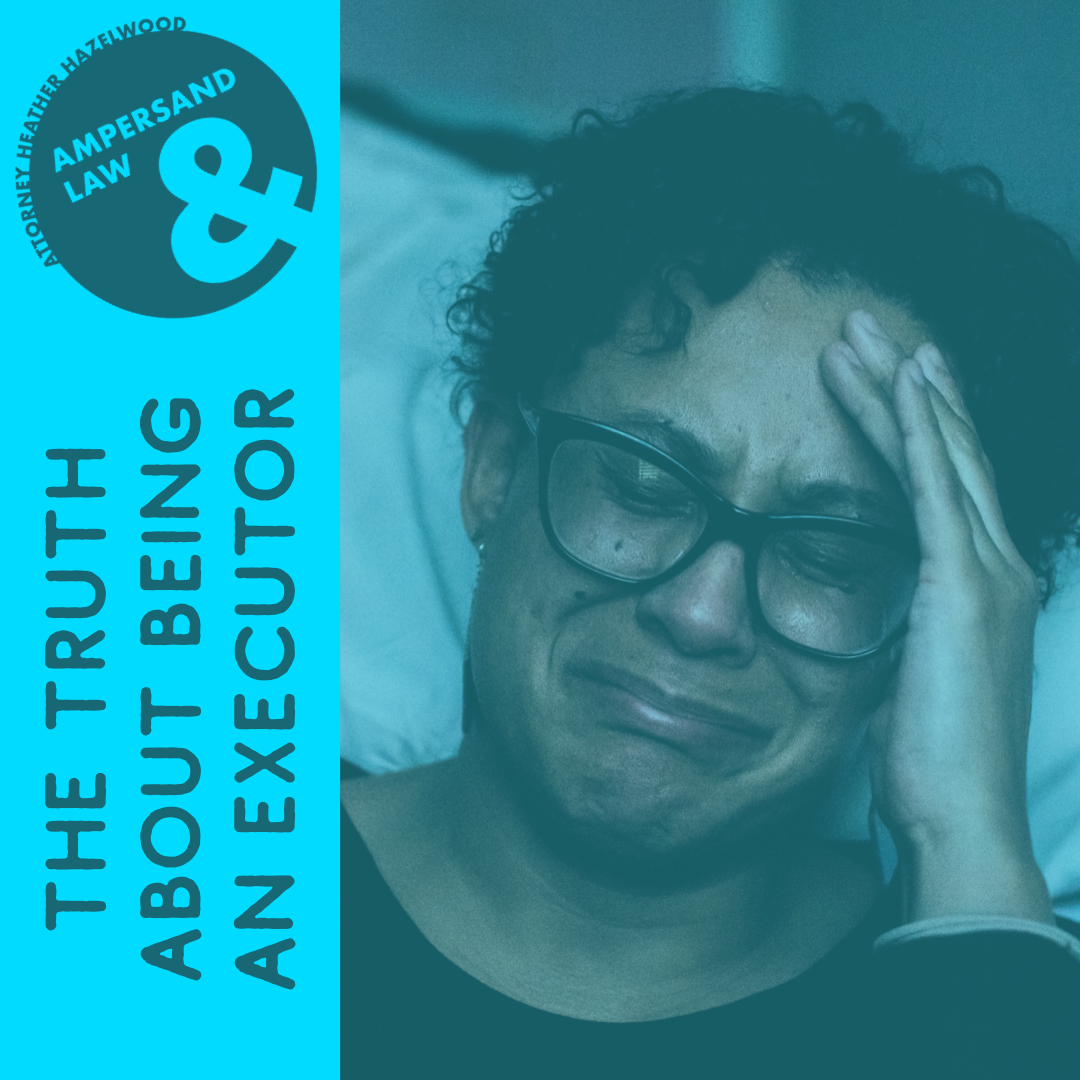The Truth About Being an Executor
The Executor (or Executrix or Personal Representative) is the person (or people) you name in your Will who will be responsible for carrying out the terms of the document after you die. The exact duties vary from state to state, and can even vary within a state based on the specifications of different Wills. But, generally speaking, an Executor is responsible for things like:
Finding the original Will
Filing it with the appropriate court
Contacting the necessary people (generally those named in the Will)
Inventorying, managing, protecting, and sometimes liquidating assets
Canceling/closing accounts
Paying expenses, debts, and taxes
Keeping proper documentation and filing necessary paperwork with the court
Making distributions to beneficiaries of the Will
+++ check out these articles from the American Bar Association and Kiplinger for more info on the various responsibilities of Executors
All emotions aside (which is silly to pretend because Executors are usually grieving themselves and part of a community of people who are grieving), being an Executor is a lot of work. It's often complicated, stressful, and tedious and typically goes on for a number of months (4-6 on the short-end in my experience, but more typically 12-15). Many Executors hire an attorney to help them with this process (although it's not generally a requirement to do so). And, being an Executor actually can cost them a fair amount time and money out-of-pocket that may not be repaid. (For more on the challenges of being an Executor, and things to consider before agreeing to be named an Executor, check out these articles from Forbes, Investopedia, and AARP.)
It's true: Executors often have to take time off work and away from family to meet their obligations. And, if they don't live locally, they'll have travel, lodging, and related expenses. Compensation for their time and efforts (called "commission" in North Carolina) and reimbursement of their actual expenses isn't guaranteed unless the Will expressly says so.
If a Will says nothing about this, or only has standard, vague provisions, an Executor generally has to get the approval of all beneficiaries and the court to get reimbursed for their actual (personal) expenses and then has to wait until the very end of the matter to ask the court for approval of a commission to compensate them for their time (NC law allows up to 5% of the estate value, but it's entirely up to the discretion of the court).
This is why careful, thoughtful drafting of your Will and understanding the meaning and implication of each and every provision is so important!
From time to time, I have potential clients who insist that their Executors cannot be paid, or won't want to be paid. And, unless that Executor is the only beneficiary of the Will, that's a limitation I advise strongly against. In fact, I regularly recommend that clients consider including generous and specific language in their Wills to allow Executors to be paid for their efforts and reimbursed every penny they have to spend to fulfill their Executor responsibilities without an excessive approval process. Providing these options are kind, realistic, and necessary in my opinion. And those who don't want (or need) to be paid or reimbursed, simply won't ask for it. But those who do want (and/or need) it, will be so grateful.
Have you ever been an Executor? What was your experience like?
Check out the related articles below for more on thoughtful estate planning. Ready to get started or want to review your existing documents? Contact me.

